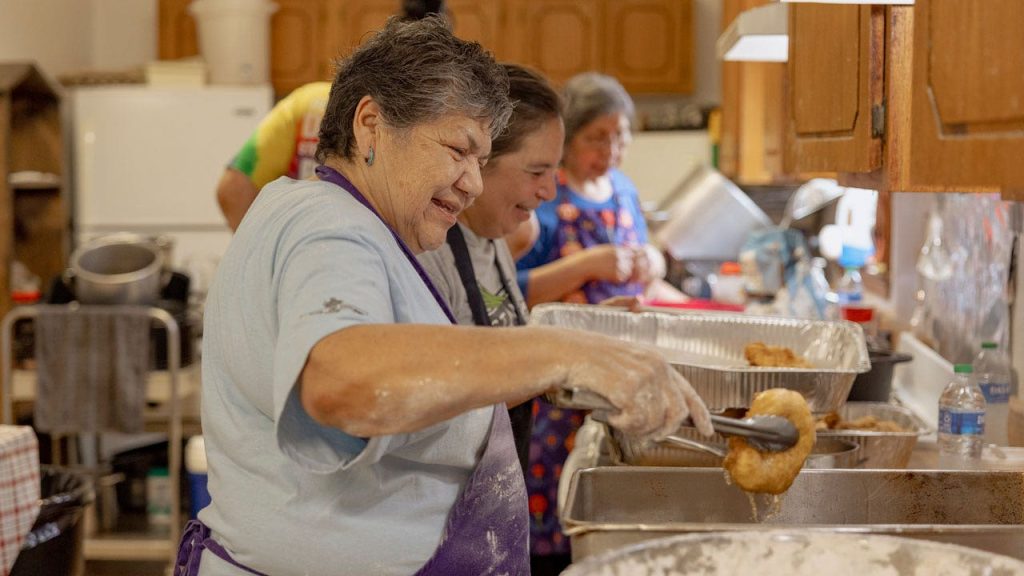As winter transitions to spring in Oklahoma, Cherokee chef Bradley James Dry begins foraging for morels and wild green onions, which are staples in Native American cuisine in the region. Wild onions are among the first foods to grow in the South at the end of winter, and Indigenous communities in Oklahoma gather for wild onion dinners every Saturday from February through May. Dry, who learns foraging and cooking from his Cherokee grandmother, hunts for wild onions in parks and empty lots near downtown Tulsa, straddling the Muscogee Nation and the Cherokee Nation.
Traditionally, wild onions are boiled and fried with scrambled eggs for large gatherings, served alongside fried pork, beans, frybread, chicken dumplings, cornbread, and safke, a soup made with cracked corn and wood ash lye common among tribal nations in the southeast. Dry likes to blend tradition with contemporary by using wild onions in dishes like omelets, kimchi, salsa, and chimichurri for steaks. In Okmulgee, the capital of the Muscogee Nation, a community gathers for a wild onion dinner to raise funds for a tribal citizen competing at the Miss Indian World Pageant in Albuquerque, New Mexico, showcasing the cultural significance and community support around wild onion dinners.
Over the years, wild onion dinners in Oklahoma have evolved from church fundraisers to community events that unite people from different tribes and regions. United Methodist Churches in Native American communities initially used wild onion dinners to raise funds for church expenses, but the tradition has grown into a large community event. Tribes like the Muscogee, Chickasaw, Choctaw, Cherokee, and Seminole participate in wild onion dinners as a way to support one another and preserve their cultural ties. The dinners also serve as opportunities for Indigenous communities to come together, share stories, and celebrate their heritage.
At the Springfield UMC in Okemah, another 35 miles south of Okmulgee, a similar community event is held, drawing people from Arkansas, Kansas, and Texas to partake in the church’s famed fried pork and wild onion meals. The church has been hosting wild onion dinners for nearly two decades, with elders like Carol Tiger overseeing the cooking process. Families of the church contribute to the event by purchasing cleaned and chopped onions, and everyone comes together to prepare and serve food, share stories, and enjoy the sense of community and fellowship that these events bring.
The wild onion dinners not only celebrate Indigenous cuisine and traditions but also serve as fundraisers for individuals like Claudia McHenry, who is supported by the community to compete in the Miss Indian World Pageant. The dinners attract hundreds of people who pay for a plate of food to support these causes, demonstrating the power of community and solidarity within Indigenous communities in Oklahoma. From hunting wild onions to cooking traditional dishes and sharing stories, these dinners are more than culinary events – they are a way for Indigenous people to connect, support each other, and celebrate their shared heritage.


